|
|
|
|
|
|
|
|
No Arctic- science events are scheduled for today.
|
Media
Things are Heating up for Alaska Pollock-and it's Putting Them in the Mood to Spawn. Over the past three decades, pollock spawning times in the Gulf of Alaska have varied as much as three weeks. That's potentially deadly for baby fish that are spawned into an environment that's not ideal. Now, new research confirms what some scientists have long suspected: Warmer ocean temperatures are playing a role. KTOO
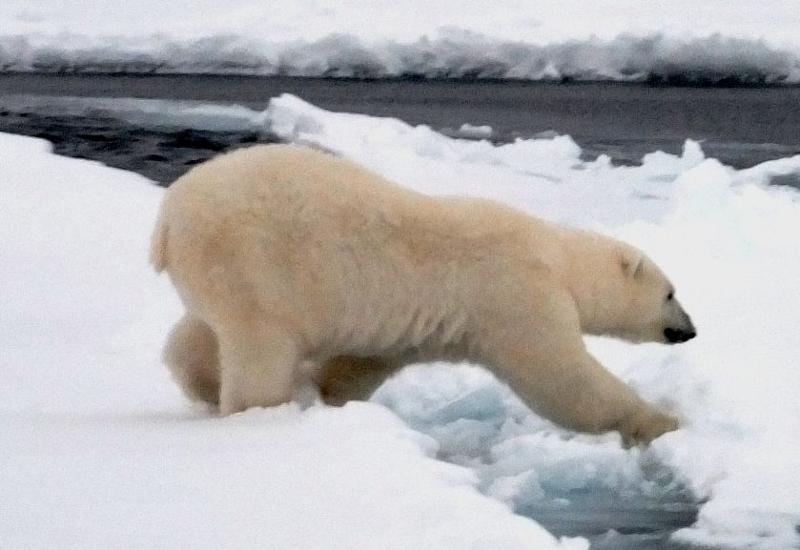 Slow Arctic Freeze Raises Risk of Polar Bear Extinction, Say Scientists. Slow Arctic Freeze Raises Risk of Polar Bear Extinction, Say Scientists. A record slow freeze of many regions of the Arctic this winter is making it harder for pregnant polar bears to find birthing dens. The delayed formation of sea ice during autumn has worried biologists, who fear a first "extirpation event" - the local extinction of a species - may be approaching faster than forecast for the most affected populations. The waters around Svalbard, an archipelago between Norway and the North Pole, have a little over half the average area of ice for this time of year. The Guardian
Melting Arctic Ice Opens up a New Frontier for US Military Competition with Russia and China. Army helicopters began flying in and out of the scraggily wilderness near this fishing town in August, surprising even the mayor. The tan, twin-rotor Chinook aircraft thumped over treeless cliffs and the historic port of Dutch Harbor, parking at a mountainside airstrip too small to land jet airliners. Soldiers came and went, sometimes staying at the main hotel in town, across the street from a bar called the Norwegian Rat Saloon. Stars and Stripes
Russia Gives Arctic Archipelago Clean Bill of Health Decades After Soviet-era Nuke Testing. An expedition by the Northern Fleet (NF) to Novaya Zemlya showed that wildlife and the natural surroundings there have fully recovered after nuclear tests had been conducted on the archipelago during the Soviet times, NF Commander Nikolai Yevmenov told reporters on Friday. "I can say that the myth about Novaya Zemlya as a radioactive waste repository of the Arctic, which keeps popping up in the Western media now and then, has been completely debunked based on the results of our experts' work. The archipelago's natural environment has successfully overcome the aftermath of this nuclear testing," he added. TASS
Arctic Inspiration Prize Announces Shortlist for Up to $3M in Awards. The Arctic Inspiration Prize has announced its annual shortlist, and two of the three contenders for a $1-million award are based in Nunavut. The shortlist was picked by members of the Arctic Inspiration Prize's regional selection committees for Yukon, the Northwest Territories and Inuit Nunangat. Ten shortlisted projects, vying for awards in three categories, were announced on Wednesday, Nov. 21. The projects focus on issues of "critical importance in Canada's North," such as food security, language revitalization, interpersonal violence, early childhood education and on-the-land science education, said a news release on Wednesday, Nov. 21. Nunatsiaq Online
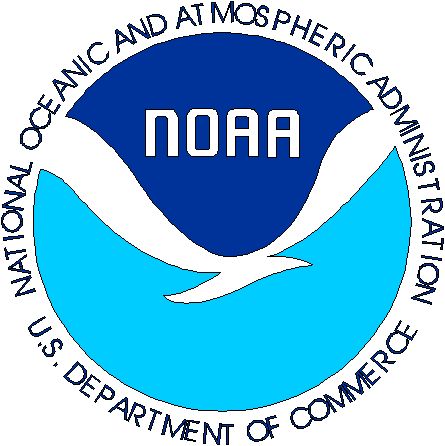 Latest Climate Report to be Released Friday. Latest Climate Report to be Released Friday. A government report on the human impact of climate change that was long scheduled for release in December is now scheduled for release on Friday -- prompting speculation that it is being buried on a day when few people will be paying attention. It's unclear why the date was moved up. The National Oceanic and Atmospheric Administration announced the Friday afternoon release on Wednesday -- the eve of the Thanksgiving holiday. WPLG
|
|
Future Events
DOD Arctic research session at SERDP/ESTCP, Nov. 29, 2018, Washington, DC. An Arctic research focus will be presented at the SERDP-ESTCP annual meeting "Enhancing DoD's Mission Effectiveness." The Strategic Environmental Research 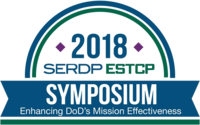 and Development Program (SERDP) and Environmental Security Technology Certification Program (ESTCP) symposium is a nationally recognized conference focusing on DOD's priority environmental and installation energy issues. This year's meeting, at the Washington Hilton Hotel, 1919 Connecticut Ave., NW, Washington, DC 20009, will feature a technical session on Arctic research under the theme of "Resource Conservation and Resiliency." The session is scheduled for Thursday, Nov. 29th, from 8:30 am to 11:30 am, and will include the following speakers: Andrew Nelson (USACE), John Farrell (USARC), Martin Jeffries (USACE/CRREL), John Woods (ONR-RC), Kevin Bjella (USARC/CRREL), and Hajo Eicken (UAF/IARC). and Development Program (SERDP) and Environmental Security Technology Certification Program (ESTCP) symposium is a nationally recognized conference focusing on DOD's priority environmental and installation energy issues. This year's meeting, at the Washington Hilton Hotel, 1919 Connecticut Ave., NW, Washington, DC 20009, will feature a technical session on Arctic research under the theme of "Resource Conservation and Resiliency." The session is scheduled for Thursday, Nov. 29th, from 8:30 am to 11:30 am, and will include the following speakers: Andrew Nelson (USACE), John Farrell (USARC), Martin Jeffries (USACE/CRREL), John Woods (ONR-RC), Kevin Bjella (USARC/CRREL), and Hajo Eicken (UAF/IARC).
Causes for the record low sea-ice extent in the Bering Sea in 2018, November 19, 2018 (Webinar). This seminar is part of NOAA's EcoFOCI bi-annual seminar series focused on the ecosystems of the North Pacific Ocean, Bering Sea and U.S. Arctic to improve understanding of ecosystem dynamics and applications of that understanding to the management of living marine resources. This webinar will be an in-depth look at the driving factors of a warm Bering Sea including ice arrival, extent, and implications.
American Geophysical Union Fall meeting, December 10-14, 2018 (Washington, DC USA). The AGU 2018 Fall Meeting will mark another dynamic year of discovery in Earth and space science, serve as the advent of AGU's Centennial year, and provide a special opportunity to share our science with world  leaders in Washington, D.C. As the largest Earth and space science gathering in the world, the Fall Meeting places you in the center of a global community of scientists drawn from myriad fields of study whose work protects the health and welfare of people worldwide, spurs innovation, and informs decisions that are critical to the sustainability of the Earth.
USARC Commissioner Jacqueline Richter-Menge to deliver the Nye Lecture at the 2018 AGU Fall Meeting. The US Arctic Research Commission (USARC) is pleased to announce that Commissioner Jacqueline Richter-Menge will present this year's Nye Lecture, titled "A Career of Change," at the Fall Meeting of the American Geophysical Union (AGU) in Washington, DC at 2:50 pm on Tuesday, December 11, 2018 in the Marquis room of the Marriott Marquis Hotel, 901 Massachusetts Ave. NW, Washington, DC 20001.
ArcticNet: Annual Scientific Meeting 2018, December 10-14, 2018 (Ottawa, ON Canada). Canada's North is experiencing unprecedented change in its sea and terrestrial ice, permafrost and ecosystems under the triple pressures of climate change, industrialization and modernization. The impacts of these pressures can be seen on food and energy security, shipping, sovereignty, northern community health and well-being, and sustainable development and resource exploitation. All these issues have brought the North to the forefront of national and international agendas. Building on the success of its previous Annual Scientific Meetings and International Arctic Change Conferences, the Arctic Network of Centers of Excellence announces the 14th ArcticNet Annual Scientific Meeting.
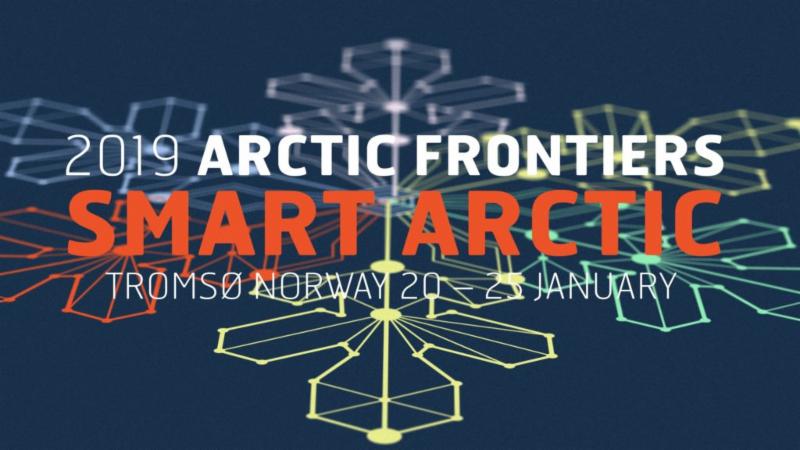 Arctic Frontiers, January 20-25, 2019 (Tromso, Norway). The Arctic Frontiers is a global scientific conference on economic, societal, and environmental sustainable growth. This year's theme will be "Smart Arctic," with a pan-arctic emphasis, and an effort to build new partnerships across nations, generations and ethnic groups. Arctic Frontiers provides a forum for dialogue and communication between science, government and industry. The plenary program will have five main sessions: State of the Arctic, Blue Growth, Smart Solutions, Bridging the Gap, and Arctic business prospects. An abstract-driven science program will address Plastics in the Ocean, the Future of Governance and Handling Vulnerability in Arctic Ecosystems, State of the Arctic and A Smart Arctic Future.
Save the Date! 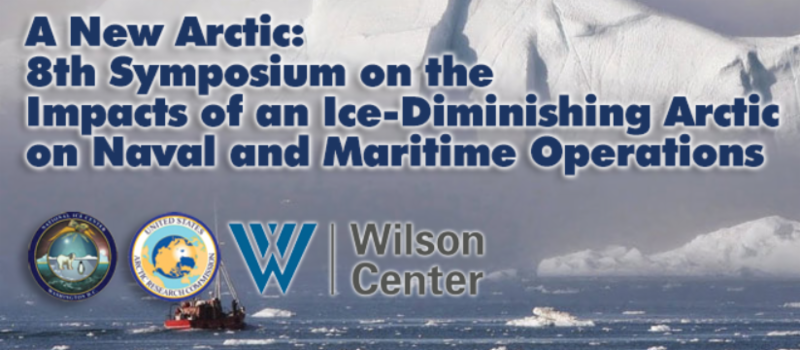
Mark your calendars to attend IDA-8, which some have called one of the best Arctic gatherings around. Historically, this biennial symposium was co-hosted by U.S. National/Naval Ice Center (NIC) and the US Arctic Research Commission (USARC). In 2019, these partners will join forces with the preeminent Wilson Center's Polar Institute, as a third co-host. The now 2-day symposium will be held in the Ronald Reagan Building Amphitheater, in Washington, DC. The event will focus on a broad cross-section of naval and maritime operations and issues in an ice-diminishing Arctic. The symposium brings together nationally and internationally recognized experts on Arctic governance, geopolitics, marine operations, infrastructure, science, and environmental observations, from the local, regional, and pan-Arctic scale. Information on prior symposia, including lists of speakers, video clips, and copies of presentations, is available here. Attendance is free, and registration will begin in Spring 2019. The event will be webcast live, and video recorded.
 of the AAG includes over 8,500 geographers converging from the U.S., Canada, and nearly 60 other countries in a typical year including geographers, GIS specialists, environmental scientists, and other leaders for the latest in research and applications in geography, sustainability, and GIScience. of the AAG includes over 8,500 geographers converging from the U.S., Canada, and nearly 60 other countries in a typical year including geographers, GIS specialists, environmental scientists, and other leaders for the latest in research and applications in geography, sustainability, and GIScience.
|
|

  
4350 N. Fairfax Drive, Suite 510
Arlington, VA 22203, USA
External links in this publication, and on the USARC's World Wide Web site ( www.arctic.gov) do not constitute endorsement by the US Arctic Research Commission of external Web sites or the information, products or services contained therein. For other than authorized activities, the USARC does not exercise any editorial control over the information you may find at these locations. These links are provided consistent with the stated purpose of this newsletter and the USARC Web site.
|
|
|
|
|
|
|
|
|